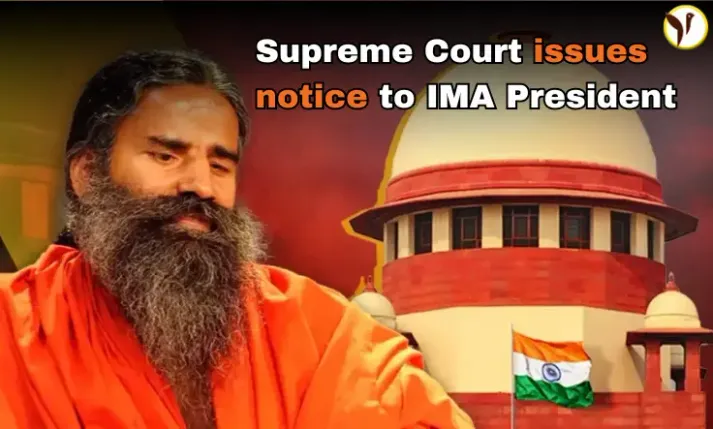The President of the Indian Medical Association (IMA) has received a notification from the Supreme Court, marking a significant development in the ongoing case involving deceptive ads. This notification is in response to an application that Patanjali's managing director, Acharya Balkrishna, filed to take action against remarks made by the IMA President during a media interview.
Judges Hima Kohli and Ahsanuddin Amanullah presided over a court that was overseeing a contempt action against Patanjali for the company's publication of deceptive advertisements. The main point of contention is an interview with Patanjali MD Acharya Balkrishna that IMA President Dr. RV Ashokan did and which received harsh criticism. Balkrishna called attention to the allegedly offensive remarks made by Dr. Ashokan in his affidavit that was filed with the Supreme Court. He also urged the court to take judicial notice and take suitable action.
Senior Advocate Mukul Rohatgi, who was representing Patanjali during the hearings, brought the interview to the court's notice. The interview was strongly disapproved of by the Supreme Court, which questioned the IMA's decision to make statements on an issue that was still under investigation. The IMA's attorney made it clear that Dr. Ashokan's remarks were mostly supportive of the court's directives. The bench shot back, saying that the court's goal is to protect the rule of law, not win favor with the public.
This move comes in the wake of previous observations made by the Supreme Court regarding the need for the IMA to address complaints of unethical practices by allopathic doctors. The court emphasized that the issue of misleading advertisements extends beyond just Patanjali, implicating several other FMCG companies. Justice Amanullah issued a stern warning to the IMA, indicating that the consequences could be severe.
In addition, the court discussed the more general problem of false health claims made by FMCG and pharmaceutical businesses in their advertising. It also closely examined the government's choice to remove Rule 170 from the 1945 Drugs and Cosmetic Regulations.
In the healthcare industry, where false information can have serious repercussions, the case emphasizes how crucial it is to maintain ethical standards in advertising. The Supreme Court is committed to protecting the public interest and making sure the rule of law is followed, as seen by its proactive approach.







